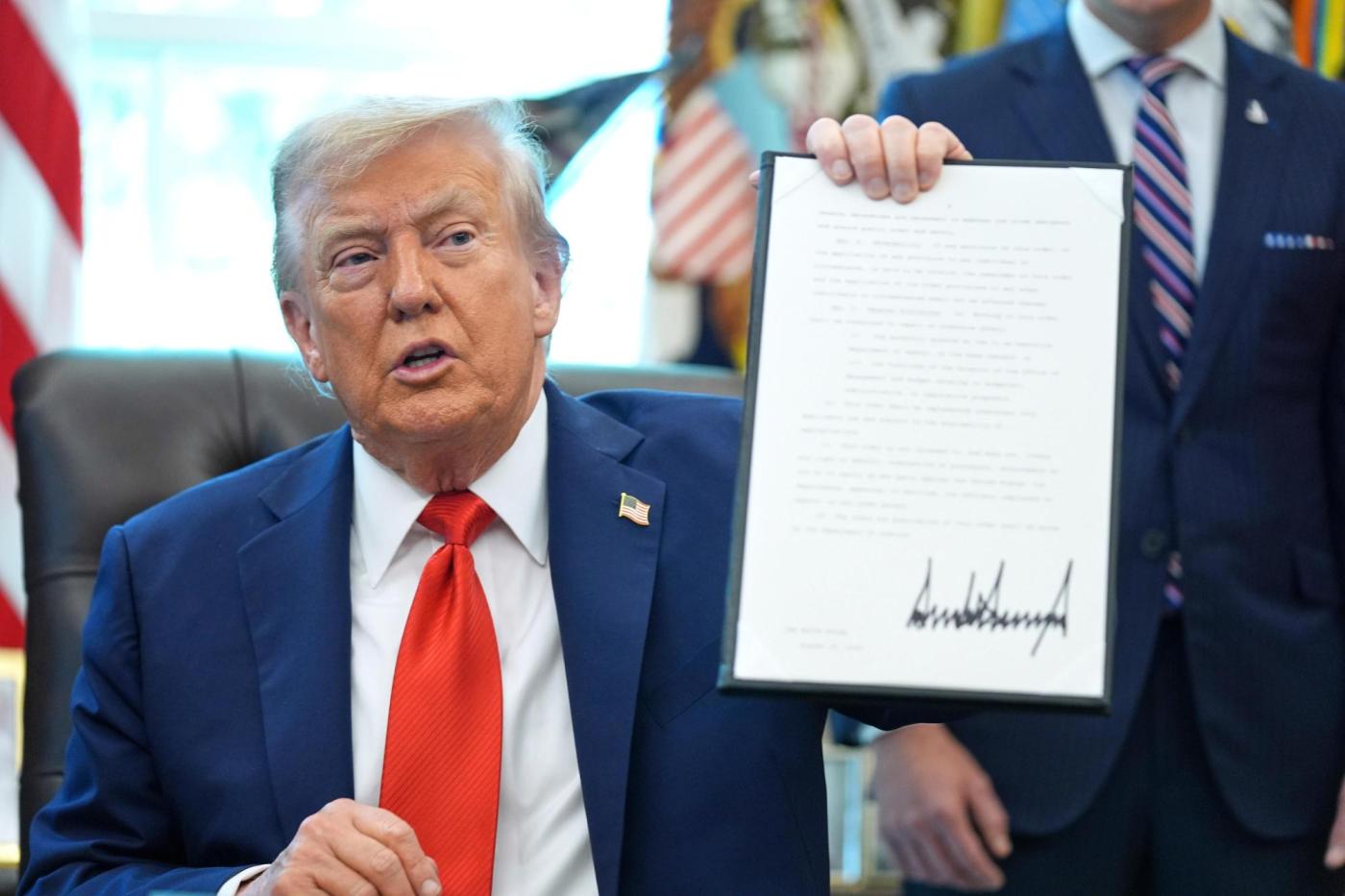World
Trump Issues Executive Orders on Cashless Bail and Flag Desecration

President Donald Trump signed two executive orders on Monday targeting “cashless bail” policies in Washington, D.C., and addressing the issue of American flag burning. These measures reflect the administration’s ongoing focus on law enforcement and national symbolism.
The executive order regarding cashless bail aims to eliminate the practice that allows individuals to be released from custody without paying bail while awaiting trial. If D.C. officials do not comply, the administration may withhold federal funding or deny approvals for government-backed projects. This move aligns with the Trump administration’s recent federal intervention in the city’s law enforcement, which has seen an increase in federal agents and National Guard troops deployed on the streets, as reported by Axios.
The order directs federal authorities to take custody of individuals arrested in D.C. rather than local law enforcement. A White House aide confirmed that this measure is intended to bolster federal oversight in the district.
In a separate executive order addressing flag desecration, Trump seeks to direct the U.S. Department of Justice to pursue legal action against individuals who burn the American flag. The order describes the flag as the “most sacred and cherished symbol of the United States,” asserting that desecrating it is offensive and intended to provoke hostility. This action comes in the wake of a controversial Supreme Court ruling in 1989 that determined flag burning in protest is protected under the First Amendment.
The executive order mandates U.S. Attorney General Pam Bondi to review instances of flag burning and assess potential legal charges. It urges her to explore litigation aimed at clarifying the boundaries of First Amendment protections in relation to flag desecration.
The order emphasizes the need for the attorney general to vigorously prosecute violations involving the American flag, asserting that these actions undermine national respect. It references Section 8 of the Flag Code, which outlines appropriate treatment and respect for the flag, such as ensuring it does not touch the ground or other inappropriate surfaces.
As these orders unfold, they are expected to spark discussions surrounding law enforcement practices and First Amendment rights, impacting both local governance and national dialogue. The implications of these actions will likely reverberate through legal and political arenas in the coming months.
-

 Lifestyle4 months ago
Lifestyle4 months agoLibraries Challenge Rising E-Book Costs Amid Growing Demand
-

 Sports3 months ago
Sports3 months agoTyreek Hill Responds to Tua Tagovailoa’s Comments on Team Dynamics
-

 Sports3 months ago
Sports3 months agoLiverpool Secures Agreement to Sign Young Striker Will Wright
-

 Lifestyle3 months ago
Lifestyle3 months agoSave Your Split Tomatoes: Expert Tips for Gardeners
-

 Lifestyle3 months ago
Lifestyle3 months agoPrincess Beatrice’s Daughter Athena Joins Siblings at London Parade
-

 World3 months ago
World3 months agoWinter Storms Lash New South Wales with Snow, Flood Risks
-

 Science4 months ago
Science4 months agoTrump Administration Moves to Repeal Key Climate Regulation
-

 Science3 months ago
Science3 months agoSan Francisco Hosts Unique Contest to Identify “Performative Males”
-

 Business4 months ago
Business4 months agoSoFi Technologies Shares Slip 2% Following Insider Stock Sale
-

 Science4 months ago
Science4 months agoNew Tool Reveals Link Between Horse Coat Condition and Parasites
-

 Sports3 months ago
Sports3 months agoElon Musk Sculpture Travels From Utah to Yosemite National Park
-

 Science4 months ago
Science4 months agoNew Study Confirms Humans Transported Stonehenge Bluestones









